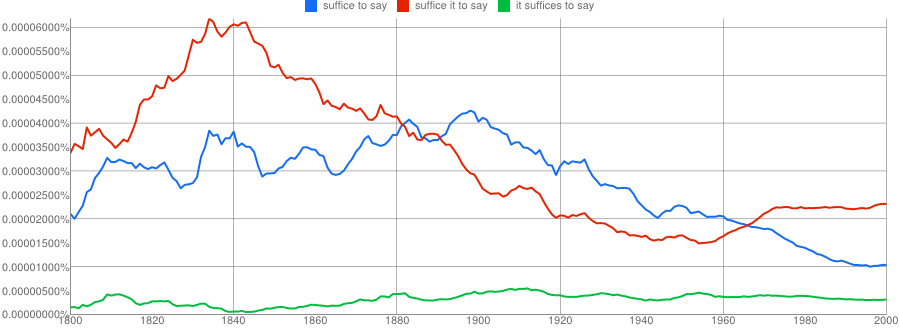What should I consider when choosing between these phrases:
suffice to say
it suffices to say
suffice it to say
I don't know about the second and third one but I can speculate that the first one ("suffice to say") is not obsolete, at least in the USA. For instance, in an episode of the TV series, Dexter, there is a conversation that goes like this:
[Dexter]: Deb found out what I am. She knows everything.
[Dr. Vogel]: Everything? How?
[Dexter]: It's a long story. Just suffice to say she's not handling it well.
So, I assume in similar situations it would be safe to use the phrase "suffice to say", yet I don't know when I'd need to switch to another alternative (after all, I don't like to mess with the Mr. Potato Head!).

